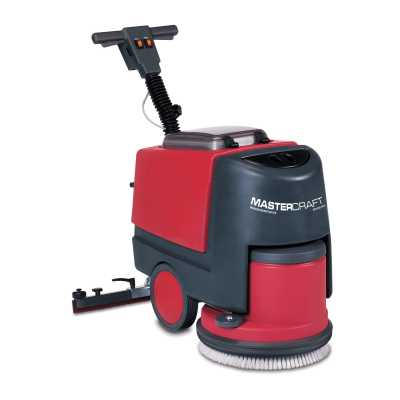Best Way to Mop Commercial Floors
Â
Commercial flooring is a significant investment for any business, and it varies depending on the level of foot traffic in each establishment. From hardwood to tile, ceramic, and commercial carpets, each type requires specific cleaning methods and maintenance routines due to their unique needs.
Let’s explore the best ways to keep your business floors clean and well-maintained!
Why Deep Cleaning Commercial Floors Matters
Floors are the first thing customers see when they enter your business. A dirty or poorly maintained floor can create a bad impression, making people less likely to stay or return. On the flip side, clean and well-kept floors reflect professionalism and care, which can enhance customer satisfaction and encourage more sales.
Since commercial floors are high-traffic areas, they tend to collect dust, dirt, and even spills—especially in food service environments. Regular cleaning and deep cleaning are essential to maintain hygiene and prevent long-term damage.
Imagine walking into a store with sticky, muddy, or dusty floors. Would you feel comfortable shopping there? Probably not. Clean floors not only look better but also make your business appear more trustworthy and well-run.
Make it a habit to clean your floors before and after business hours to ensure they always look their best.
Essential Equipment for Cleaning Commercial Floors
Before you start mopping, gather the right tools to ensure a thorough job.
Mop
Choose a sturdy mop that is easy to clean or replace. Microfiber mops are ideal for hardwood floors as they leave no streaks, while string mops work well for tile and ceramic floors. Sponge mops are versatile but should be non-abrasive.
- Microfiber Mops – Best for hardwood floors
- String Mops – Great for tile and grout
- Sponge Mops – Suitable for most floor types
Mop Bucket
A good mop bucket helps you wring out excess water, preventing streaks and water marks. A foot pedal makes it easier to open and close without touching dirty water.
Cleaning Solution
Use a solution that's safe for your specific floor type. It should effectively remove dirt and bacteria without damaging the surface.
Vacuum Cleaner
While not all floors need a vacuum, it’s useful for removing loose dirt and debris. Look for one with steam cleaning features for deeper cleaning, especially in high-traffic areas.
Wet Floor Signs
Always use wet floor signs when mopping to prevent slips and falls.
Broom or Dust Mop
Sweep the floor before mopping to avoid pushing dirt around and making the job harder.
Degreaser
Use a degreaser for kitchen tiles to remove oil and grease buildup.
 Floor Scrubber
Floor Scrubber
For tough stains, a manual or electric floor scrubber can help give your floors an extra deep clean.
Now that you have the right tools, it's time to get started!
How to Mop Commercial Floors
Different floors require different cleaning techniques. Here's how to handle some common types:
Tile Floors
Tile is durable and easy to clean, but it can be slippery when wet. Use a non-slip cleaner and don’t forget to clean the grout.
Sweep first, then mix your solution and mop in a back-and-forth motion. Wipe dry with a microfiber cloth or let it air dry.
Hardwood Floors
Hardwood is elegant but can scratch easily. Use a soft-bristled mop or microfiber pad and avoid excessive moisture.
Sweep first, then use a hardwood-specific cleaner. Mop in one direction and apply wax for protection.
Carpet Floors
Carpet adds character but needs regular vacuuming and occasional deep cleaning. Use a steam cleaner for the best results.
Vacuum in one direction, treat stains, and steam clean for a fresh, long-lasting finish.
Vinyl Floors
Vinyl is affordable and easy to maintain. Use a mild detergent and avoid over-wetting the floor.
Sweep first, then mop with a diluted solution. Dry with a microfiber cloth.
Hiring Professional Cleaners
If your space is too large or complex, consider hiring professional cleaners. They are trained to handle various floor types and can save you time and effort.
However, if you're running a small business, DIY cleaning might be more cost-effective. Just make sure to supervise them to ensure the job is done correctly.
Budget-Friendly Tips
You don't have to spend a lot to keep your floors clean. Many homemade solutions work just as well as commercial products.
Make Your Own Cleaner
Mix equal parts white vinegar, rubbing alcohol, and water with a bit of dish soap for a powerful yet affordable tile or vinyl cleaner.
DIY Hardwood Cleaner
Combine 1 gallon of water, ¾ cup olive oil, and ½ cup lemon juice for a natural, shiny finish on hardwood floors.
Final Thoughts
Keeping your commercial floors clean doesn’t have to be expensive or complicated. With the right tools, techniques, and a little planning, you can maintain a clean, welcoming environment for your customers. Always test new cleaners in a small area and follow the manufacturer’s instructions to avoid damage. Whether you do it yourself or hire professionals, your floors will thank you!
So, grab your mop and get started today!
Single Screw & Barrel,Extruder Screw Barrel,Extruder Screws & Barrels,Professional Extruder Screw Barrel
Zhejiang Jinhai Plastic Machinery Co., Ltd. , https://www.jinhaiextruder.com